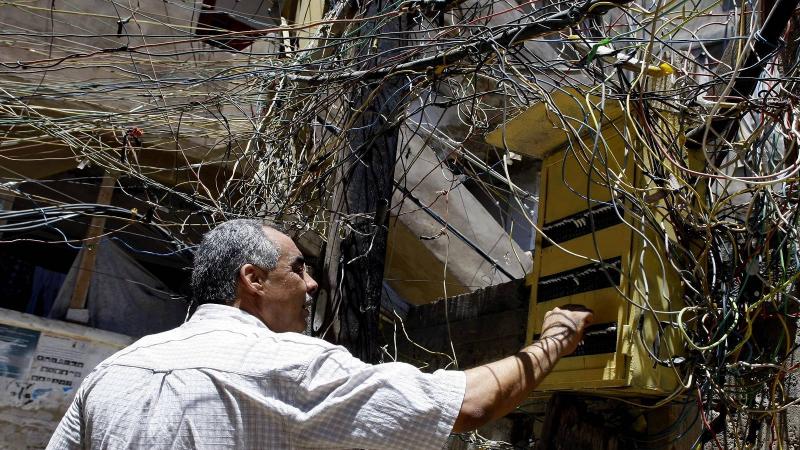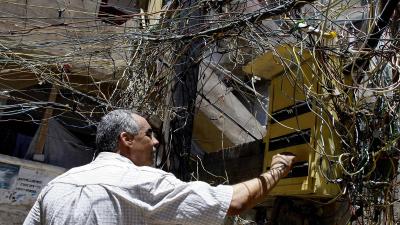The ongoing race for dollarization among private sectors, which has been recognized by the authorities through the dollarization of restaurant bills until September as a first step, is now looking into the collective gathering of private generator owners to agree during a meeting held yesterday on setting the prices of bills in dollars, which will be exchanged into Lebanese pounds according to the black market exchange rate. This meeting also involved agreements to raise the fixed price in the tariff through coordination with the Ministry of Energy regarding the new pricing and to increase the operating hours of private generators "provided there is an understanding between the generator owner and the subscribers."
The demand for pricing generator bills in green currency raises several questions regarding the legality of this measure, first, and second, the extent of the damage it inflicts on the poor citizen whose bill amounts to millions of pounds amidst rationing, in the absence of a state that protects him and provides the minimum requirements for daily living. Meanwhile, the Ministry of Energy and Water, specifically the Legal and Consultancy Authority within it, confirmed in a communication with "Nada Al-Watan" that this measure is illegal and "pricing electric generators in dollars is prohibited."
Regarding the implications of this issue if pricing were to be set in dollars through an exceptional decision, it could harm the citizen who would struggle to control the price of the generator and know the approximate value of the bill at the end of the month, as this would depend on fluctuations in the exchange rate. Particularly since some generator owners who evade installing meters rely on "fixed" billing.
In this context, former General Director of Investment at the Ministry of Energy and Water Ghassan Baydoun confirmed to "Nada Al-Watan" regarding the billing of generators priced according to the black market dollar rate that it is "an illegal procedure, and if this demand is pursued, the state would legitimize illegal activity as if we are recognizing it, which could impose acquired rights on the private generator sector, whether in terms of operating the facility instead of the state or in terms of claiming compensations." He emphasized that "all decisions issued by ministers to price in dollars are contrary to the law, as if they are freeing traders from adherence to the national currency."
Baydoun questioned, "Who says that the rate of generators per kilowatt that may be issued in dollars is fair and accurate? Who knows the actual costs incurred by the generator owners? The employees at the Ministry of Energy have no relation to these calculations and are under the minister's authority. They may err and raise the price per kilowatt in the rates they issue. Moreover, not all elements required to operate a generator are priced in dollars; only diesel is charged in dollars, but labor costs are not in dollars, nor is the rented land or maintenance."
He pointed out that "even the rate of 'energy' for Electricite du Liban has been raised to 50 cents per kilowatt from previous estimates of 10 cents, then increased to 27 cents, thus competing with the 50 cents charged by generator owners."
There were claims that the cost of providing electricity through the Electricite du Liban with fuel and diesel is estimated at 24 cents for fuel. Therefore, Baydoun asked, "How can the kilowatt/hour price of gas (which is 40% cheaper than fuel) be sold at a higher price than fuel, operating it at a value of 50 cents?" He described conversations about this pricing as "delirium," emphasizing that "the state cannot act as if it were a shop competing with another shop."
For his part, economic and financial expert Walid Abu Suleiman noted in his comments to "Nada Al-Watan" that the demand from generator owners for "billing" in green currency comes after the Ministry of Tourism dollarized restaurant bills "as part of comprehensive dollarization." He considered that if the Ministry of Energy agrees to this, it would be "an acknowledgment from the Lebanese state of the parallel market, especially since the Ministry of Finance has the responsibility to audit the bills to impose taxes on the generator owner or trader. Therefore, this procedure does not serve the interests of the citizen; instead, it would be better for the Ministry of Energy to increase the hours of electricity supply, thus diminishing the role of generator owners."




